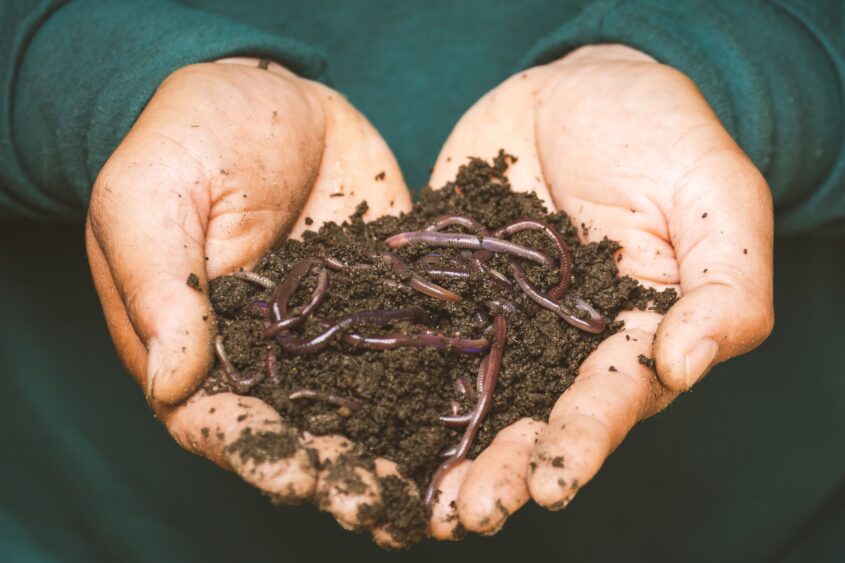Friendships are one of the beautiful gifts in life. In friendships you get to cheer on one another and affirm talents they share to impact a community for the better. Along the years together in friendship, you find common interests that deepen your bond and pick up new interests too. My friendships teach me a lot about communication, sacrifice, and loyalty with bonus learnings about Marvel, 14ers, and vermicomposting. Recently, a sister-like friend shared her love for vermicomposting. Her passion lights up her entire face when she talks about setting up your bins, the best worms to buy, how to feed them, and when it is time to harvest their castings. She is generous to share all her learnings. And what captures my attention as she introduces me to “vermicomposting” that up until about an hour ago I had no idea was a thing, is how much fulfillment and satisfaction this hobby gives my friend. I find myself asking the question, is this for me too?
Although I have not purchased the bins or scoped out a local worm seller, the process of what’s happening in my friend’s bins entertains the idea that maybe I am “vermicomposting” in a metaphorical way without worms and food scraps. The goal of vermicomposting is to use discards of produce scraps, shredded mail, eggshells, toilet paper rolls, or coffee grounds from daily life to feed these worms that produce castings to fertilize the heck out of your garden. All the information linked to vermicomposting reaffirms this process produces the best fertilizer. On top of that, arborists tell us that the quality of fertilizer can revive or destroy grass, flower beds, or gardens.
When I stack my life next to the “vermicomposting” process, the question arises whether or not my “fertilizer” revives or destroys. Do the effects of my words and actions benefit or take away from the community around me? Let’s do some digging. Picture your heart and mind as a grey 18-gallon storage bin. Dreamy, right? Now, ask yourself two questions. First, what am I putting into this “bin” that feeds my thoughts and motivations? Second, how frequently do I take time to “till up” the things collected in my “bin”? When my friend had her bin popped open, she used her hand to till up to see what the worms had not eaten yet and to take inventory of the balance between “browns” and produce scraps. She finds a rhythm between feeding and tilling to maintain a good bin with hopes of good fertilizer.
To find out whether I am maintaining a good “bin” I start by asking, what am I feeding it? The ways to feed my thoughts and motivations are endless. I like to narrow the field with categories of either “good things” or “junk”. Good things ingested in my life could include game night with friends, time with God before work, a selfie at the top of a mountain, or church on Sundays. The junk I want to avoid, but sometimes indulge in are scroll Instagram to compare my life to others, compromise personal health to gain a work promotion, pour another drink to fill loneliness, or watch sitcoms on repeat to avoid responsibilities. We each have our lists.
Now, I have learned that the most important part of the process is the rhythm of “tilling up” what is in my bin. This looks different for everyone. Find your rhythm that works. God wired me with high self-awareness. Therefore, my hands usually stay dirty from daily tilling. However, a monthly rhythm could be your sweet spot. This is the time to pop open the bin and see what is inside. Are you finding more “good” or “junk” to till up? Can you put your hands on the specific lessons God is teaching you, or words in the Bible that are easy to remember, or people you live life with that model the love of God? Spending this time to examine the things in your bin can be tedious but can you imagine the impact of good fertilizer? I want to be part of revived things.
So, what’s in your bin?
